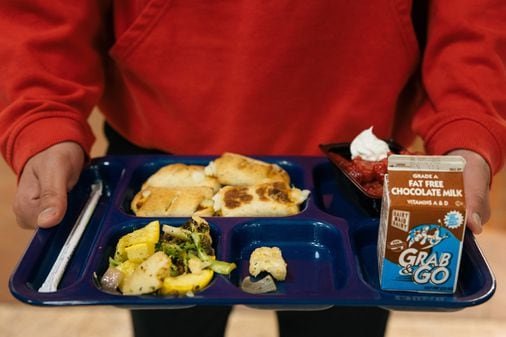Access to school meals is currently based on household income. Students are eligible for free school meals if their parents’ income is less than 130 percent of the federal poverty level ($40,560 for a family of four). The federal government also allows entire school districts with high percentages of low-income families, like Providence, to provide free lunch and breakfast to all students and reimburse the district for each meal served.
Rhode Island got a glimpse of the power of universal school lunches during the pandemic, when the Legislature covered the cost of providing free school meals to all students in the state. More students in every district ate lunch and breakfast. Universal school meals have also been shown to improve children’s health, school attendance, and academic performance.
The Congressional waiver that made universal school lunches possible expires in June 2022. In the following school year, school lunch participation decreased by 15 percent. School breakfasts have decreased by 25 percent. Rhode Island students served 11,000 fewer lunches and 10,000 fewer breakfasts each day in school than last year. This means 11,000 children did not have lunch. 10,000 people did not eat breakfast.
For families with children in Rhode Island, the end of the pandemic-era program could not have come at a worse time. Rising food prices have left many more families without food and turning to food pantries for help. The Rhode Island Community Food Bank’s statewide food pantry network has grown from serving 63,000 people to 80,000 people per month. One-third of the people served at the food pantry are families with children.
If we want to reduce food pantry lines, we should do what it takes to feed more children at school. It’s that simple.
Now is the time for Rhode Islanders to invest in available and effective solutions to child hunger. Bills have been introduced in both houses of the General Assembly that would provide free school meals to all public school students starting in September.
Rhode Island, like three other New England states, Massachusetts, Vermont, and Maine, will commit state funds to ensure free school meals are available to all children. I can do it. Take action now to ensure children get the nutrition they need to learn, grow and thrive.
Andrew Schiff is the CEO of the Rhode Island Community Food Bank.

